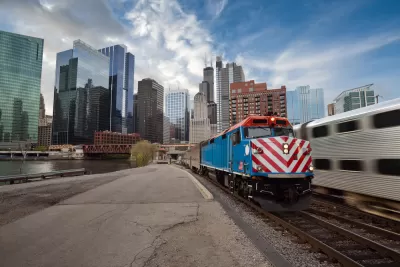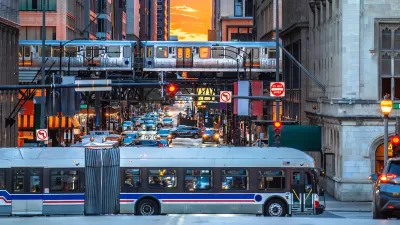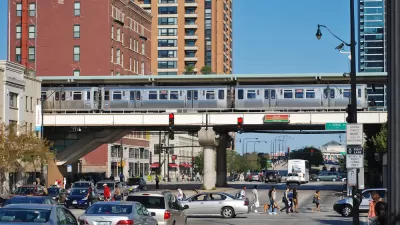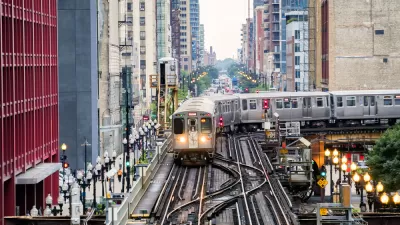Public transportation that serves regional areas makes sense, but the United States has been slow to pursue strategies and policies that foster these types of systems.

Yonah Freemark writes that regional transit systems are an important way to create effective and robust mobility networks. In places like Germany and France, commuter rail has been integrated into larger systems offering fast and frequent service that connects suburbs and downtowns.
"These regional rail services have transformed metropolitan travel in the places where they’ve been implemented because they make show-up-and-go, fast service available to whole regional populations, not just those who live in center cities, where frequent local rail and bus options are available," says Freemark.
But regional transportation is not characteristic of transit networks in the United States, and Freemark uses Chicago as a case study, where the Chicago Transit Authority operates buses and light rail and Metra runs commuter rail service. While the two agencies receive funding from the same sources, they have been set up as competitors.
And political control of the agencies is also part of the issue, notes Freemark. As a result, Chicago Mayor Lori Lightfoot, who controls the CTA, opposed a proposal to lower fares on Metra to make it more accessible to riders because of the potential decrease in CTA ridership that would result.
Freemark urges a rethinking of the goal of public transit. If it is about providing accessible, affordable mobility options, then developing regional transportation needs to be the focus. "Finding the political will to surmount these institutional constraints and develop regional rail should be a priority in virtually every metropolitan area," he adds.
FULL STORY: The perverse incentives produced by institutional division

Planetizen Federal Action Tracker
A weekly monitor of how Trump’s orders and actions are impacting planners and planning in America.

Restaurant Patios Were a Pandemic Win — Why Were They so Hard to Keep?
Social distancing requirements and changes in travel patterns prompted cities to pilot new uses for street and sidewalk space. Then it got complicated.

Map: Where Senate Republicans Want to Sell Your Public Lands
For public land advocates, the Senate Republicans’ proposal to sell millions of acres of public land in the West is “the biggest fight of their careers.”

Maui's Vacation Rental Debate Turns Ugly
Verbal attacks, misinformation campaigns and fistfights plague a high-stakes debate to convert thousands of vacation rentals into long-term housing.

San Francisco Suspends Traffic Calming Amidst Record Deaths
Citing “a challenging fiscal landscape,” the city will cease the program on the heels of 42 traffic deaths, including 24 pedestrians.

California Homeless Arrests, Citations Spike After Ruling
An investigation reveals that anti-homeless actions increased up to 500% after Grants Pass v. Johnson — even in cities claiming no policy change.
Urban Design for Planners 1: Software Tools
This six-course series explores essential urban design concepts using open source software and equips planners with the tools they need to participate fully in the urban design process.
Planning for Universal Design
Learn the tools for implementing Universal Design in planning regulations.
Heyer Gruel & Associates PA
JM Goldson LLC
Custer County Colorado
City of Camden Redevelopment Agency
City of Astoria
Transportation Research & Education Center (TREC) at Portland State University
Camden Redevelopment Agency
City of Claremont
Municipality of Princeton (NJ)





























